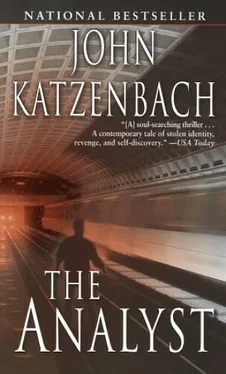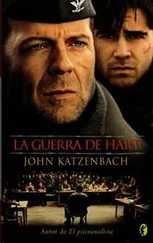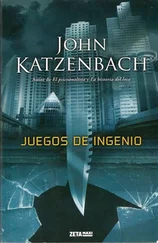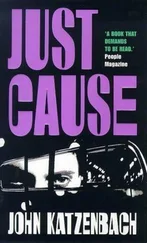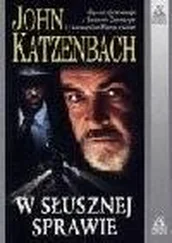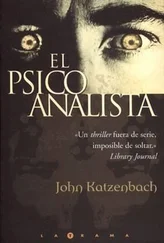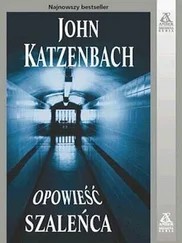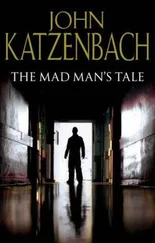Ricky sat at the computer, slightly astonished.
When his own name came up, and the second of the family tree programs that he was employing showed him as recently deceased, he stiffened in his chair, surprised, though he shouldn’t have been; it was the same way that one feels a momentary surge of shock when an animal runs in front of their car wheels at night, only to disappear into the shrub brush by the side of the road. An instant of fear, swept away in the same moment.
He had worked for decades in a world of privacy, where secrets were hidden beneath emotional fogs and layers of doubts, mired in memory, obscured by logjammed years of denials and depressions. If analysis is, at best, the slow peeling away of frustrations in order to expose truths, the computer seemed to him to have the clinical equivalence of a scalpel. Details and facts simply blipped across the screen, cut free instantaneously with a few strokes on a keyboard. He hated it at the same time that it fascinated him.
Ricky also realized how antique his chosen profession appeared.
And, swiftly, he understood, as well, how little chance he’d ever had at winning Rumplestiltskin’s game. When he replayed the fifteen days between the letter and his pseudodeath, he realized how easy it had been for the man to anticipate every move Ricky made. The predictability of his response at every turn was utterly obvious.
Ricky thought hard about another aspect of the game. Every moment had been designed in advance, every moment had thrust him in directions that were clearly expected. Rumplestiltskin had known him every bit as well as he had known himself. Virgil and Merlin together had been the means used to distract him from ever getting any perspective. They had created the breakneck pace, filled his last days with demands, made every threat real and palpable.
Every step in the play had been scripted. From Zimmerman’s death by subway to his trip to see Dr. Lewis in Rhinebeck, through the clerk’s office at the hospital where he’d once seen Claire Tyson. What does an analyst do? Ricky asked himself. He establishes the simplest yet most inviolable of rules. Once a day, five days per week, his patients showed up at his door, ringing the bell distinctively. Out of that regimen the rest of the chaos of their lives gained form. And with that, the ability to get control.
The lesson was simple, Ricky thought: He could no longer be predictable.
That was slightly incorrect, he told himself. Richard Lively could be as normal as necessary, as normal as he desired. A regular kind of guy. But Frederick Lazarus was to be someone different.
A man without a past, he thought, can write any future.
Frederick Lazarus obtained a library card, and immersed himself in the culture of revenge. Violence dripped from every page he read. He read histories, plays, poetry, and nonfiction, emphasizing the genre category of true crime. He devoured novels, ranging from thrillers written in the last year, to Gothics from the nineteenth century. He blistered through the theater, almost memorizing Othello and then, deeper still, to The Oresteia . He plucked segments from his memory and reread passages recalled from his own college days, spending time in particular with the man who donated his screen name to him and lent him the name he’d used with the derelict whose wallet he’d stolen. He absorbed the sequence where Odysseus slams shut the doors on the suitors and promptly murders all the men who presumed him dead.
Ricky had known little of crime and criminals, but fast became expert-at least, he understood, to the degree that the printed word can educate. Thomas Harris and Robert Parker taught him, as did Norman Mailer and Truman Capote. Edgar Allan Poe and Sir Arthur Conan Doyle were mixed liberally with FBI training manuals available through the Internet bookselling outlets. He read Hervey Cleckley’s The Mask of Sanity and came away with a much better knowledge of the nature of psychopaths. He read books entitled Why They Kill and The A to Z Encyclopedia of Serial Killers . He read about mass murder and explosive killings, crimes of passion and murders thought to be perfect. Names and crimes filled his imagination, from Jack the Ripper to Billy the Kid, to John Wayne Gacy and The Zodiac Killer. From past through the present. He read about war crimes and snipers, about hit men and satanic rituals, mobsters, and confused teenagers who took assault rifles to school, searching for classmates who had teased them perhaps once too often.
To his surprise, he discovered he was able to compartmentalize all he read. When he shut the cover of yet another book detailing some of the more grisly acts one man can do to another, he put aside Frederick Lazarus and returned to Richard Lively. One man studied how to garrote an unsuspecting victim and why a knife is a poor choice for a murder weapon, the other read bedtime stories to his landlady’s four-year-old grandson and memorized Green Eggs and Ham , which the child never tired of hearing at virtually any moment of the day or night. And, while one man studied the impact of DNA evidence in crime scene analysis, the other spent one long night talking an overdosed student down from a dangerous high.
Jekyll and Hyde, he thought.
In a perverse way, he discovered that he enjoyed the company of both men.
Maybe, curiously enough, more than the man he’d been when Rumplestiltskin entered his life.
Late one early spring night, nine months after his death, Ricky spent three hours on the telephone with a distraught, deeply depressed young woman who called the suicide prevention line in despair, a bottle of sleeping pills on the table in front of her. He spoke to her of what her life had become, and what it could become. He painted a word picture with his voice of a future free from the sorrows and doubts that had driven her to the state she was in. He wove hope into every thread of what he said, and when the two of them greeted the first dawn light, she had put aside the threatened overdose and made an appointment with a clinic physician.
When he walked out that morning, more energized than exhausted, he decided that it was time to make his first inquiry.
Later that day, when he had finished his shift in the maintenance department at the university, he used his electronic pass card to enter the computer sciences department’s student study room. This was a square space cut up into study carrels, each with a computer linked to the university’s main system. He booted one up, entered his own password, and slid right into the system. In a folder by his left hand, he had the small amount of information that he’d obtained in his former life about the woman he had ignored. He hesitated momentarily, before making his first electronic sortie. Ricky understood he could probably find freedom and a quiet, simple life, merely by living the rest of his days as Richard Lively. Life as a janitor wasn’t that bad, he had to acknowledge. He wondered, for an instant, whether not knowing would be better than knowing, because he knew that as soon as he began the process of uncovering the identities of Rumplestiltskin, and his partners, Merlin and Virgil, he would be unable to stop. Two things would happen, he told himself. All the years spent as Dr. Starks, dedicated to the proposition that unearthing truth from deep within was a valuable enterprise, would take hold of him. And Frederick Lazarus would demand his own dues, as the vehicle for his assault.
Ricky warred within himself for some time. He was unsure how long. It might have been seconds, he might have stared at the screen in front of him for hours, fingers poised, frozen, above the keyboard.
He told himself that he would not be a coward.
The problem was, he thought, where did cowardice lie? In hiding. Or in acting?
Читать дальше
